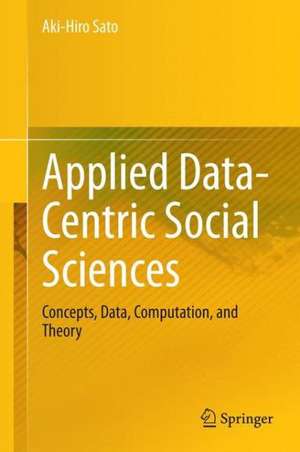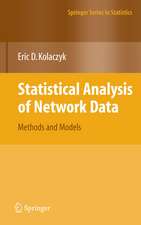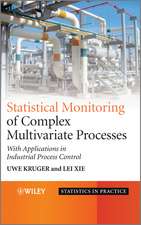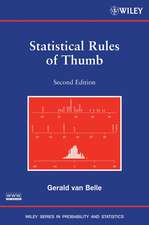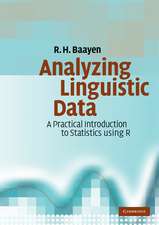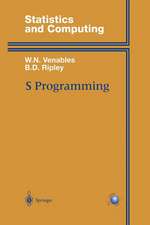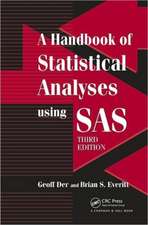Applied Data-Centric Social Sciences: Concepts, Data, Computation, and Theory
Autor Aki-Hiro Satoen Limba Engleză Hardback – 11 aug 2014
| Toate formatele și edițiile | Preț | Express |
|---|---|---|
| Paperback (1) | 388.90 lei 6-8 săpt. | |
| Springer – 27 sep 2016 | 388.90 lei 6-8 săpt. | |
| Hardback (1) | 396.24 lei 6-8 săpt. | |
| Springer – 11 aug 2014 | 396.24 lei 6-8 săpt. |
Preț: 396.24 lei
Nou
Puncte Express: 594
Preț estimativ în valută:
75.82€ • 79.53$ • 63.12£
75.82€ • 79.53$ • 63.12£
Carte tipărită la comandă
Livrare economică 01-15 aprilie
Preluare comenzi: 021 569.72.76
Specificații
ISBN-13: 9784431549734
ISBN-10: 4431549730
Pagini: 304
Ilustrații: XXIII, 281 p. 71 illus., 20 illus. in color.
Dimensiuni: 155 x 235 x 22 mm
Greutate: 0.61 kg
Ediția:2014
Editura: Springer
Colecția Springer
Locul publicării:Tokyo, Japan
ISBN-10: 4431549730
Pagini: 304
Ilustrații: XXIII, 281 p. 71 illus., 20 illus. in color.
Dimensiuni: 155 x 235 x 22 mm
Greutate: 0.61 kg
Ediția:2014
Editura: Springer
Colecția Springer
Locul publicării:Tokyo, Japan
Public țintă
GraduateCuprins
Introduction.- Introduction.- Framework.- Methodology.- Mathematical expressions.- Data in computers.- Exemplar studies.- Risk assessment of extreme events.- Segmentation study of foreign exchange market.- Hotel booking data.- Tendency of international air travels.- Energy consumption.- Future work.- Future research in applied data-centric social sciences.
Textul de pe ultima copertă
Applied data-centric social sciences aim to develop both methodology and practical applications of various fields of social sciences and businesses with rich data. Specifically, in the social sciences, a vast amount of data on human activities may be useful for understanding collective human nature. In this book, the author introduces several mathematical techniques for handling a huge volume of data and analysing collective human behaviour. The book is constructed from data-oriented investigation, with mathematical methods and expressions used for dealing with data for several specific problems. The fundamental philosophy underlying the book is that both mathematical and physical concepts are determined by the purposes of data analysis. This philosophy is shown throughout exemplar studies of several fields in socio-economic systems. From a data-centric point of view, the author proposes a concept that may change people’s minds and cause them to start thinking from the basis of data. Several goals underlie the chapters of the book. The first is to describe mathematical and statistical methods for data analysis, and toward that end the author delineates methods with actual data in each chapter. The second is to find a cyber-physical link between data and data-generating mechanisms, as data are always provided by some kind of data-generating process in the real world. The third goal is to provide an impetus for the concepts and methodology set forth in this book to be applied to socio-economic systems.
Caracteristici
Provides abundant examples and case studies of data-driven investigations of socio-economic systems Presents cyber-physical approaches to data-generating processes for real-world problems Looks at how to collect, store, validate and manage data in applied data mathematics and physics Includes supplementary material: sn.pub/extras
